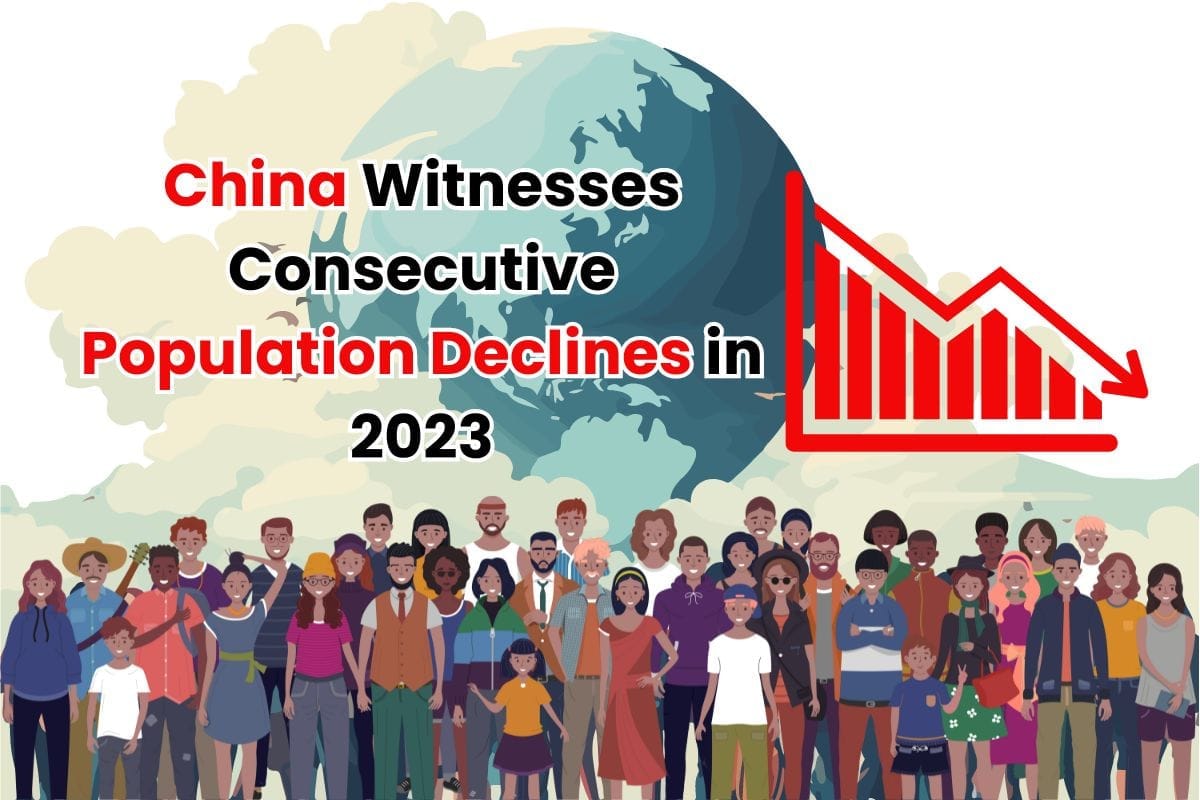
As of January 19, 2024, China’s population has experienced a second consecutive year of decline, decreasing by 2.75 million individuals to reach 1.409 billion. This decline is attributed to a combination of declining birth rates and the impact of COVID-19, both of which contribute to a significant economic downturn.
Swiftest Decrease Since the 1961 Famine
The population decrease in 2023 surpasses the decline observed in 2022, marking the fastest contraction since the Great Famine in 1961. The abrupt relaxation of stringent zero-COVID measures in late 2022 resulted in a sharp resurgence of the virus, leading to increased fatalities.
Decades-Long Plunge in Birth Rates
China’s birth rate has been on a steady decline for years, influenced by the previous one-child policy and the rapid shift towards urbanization. Migration to cities has elevated the cost of raising children, acting as a dampener on population growth.
Pandemic Policies Exacerbate Economic Challenges
The disruptions caused by COVID-related restrictions impacted manufacturing and consumer spending throughout early 2022. Following the easing of restrictions, youth unemployment surged, wages declined, and a crisis in the property sector intensified, creating disincentives for childbearing.
Shrinking Workforce and Consumer Base
The data raises concerns about China’s economic future, given a diminishing workforce and reduced domestic consumption. This situation may expedite the ongoing trend of supply chain diversification to alternative markets, such as India.
Aging Population Poses Challenges for Beijing
UN estimates suggest that China could lose over 100 million people by 2050, a figure more than triple the previous projections. The increasing retirement population places strain on the pension system and local governments.
Contrasts with Asian Counterparts
Despite the cessation of the one-child policy, China’s 2023 birth rate stands at 6.39 per 1,000 people, trailing behind regional counterparts like Japan and South Korea. This underscores generational shifts in family planning attitudes.
India Overtakes China in Population
In 2022, India surpassed China to become the world’s most populous country. This shift, coupled with economic disparities, has sparked discussions about relocating some manufacturing activities from China.
Economic Slowdown Discourages Childbearing
High levels of youth unemployment, declining real wages across sectors, and ongoing weaknesses in the property market have further discouraged young Chinese couples from having children in 2023, as economic uncertainty persists.








Leave a Reply